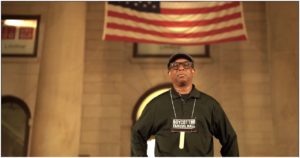The focus of Zohran Mamdani’s whirlwind campaign for mayor of New York City was on what he would bring to the city. Mamdani drew attention for his platform, which included creating city-owned grocery stores, raising the corporate tax rate, and creating a Department of Community Safety.
But, save for one question during the first mayoral debate in which the candidates were asked which country they would travel to first as mayor—Mamdani said he would stay in New York—foreign-policy discussions outside of Mamdani’s support of Palestine and criticism of Israel were understandably absent from the campaign trail. (Mamdani himself was much less interested in talking about Israel and Palestine than his opponent Andrew Cuomo was.)
The focus of Zohran Mamdani’s whirlwind campaign for mayor of New York City was on what he would bring to the city. Mamdani drew attention for his platform, which included creating city-owned grocery stores, raising the corporate tax rate, and creating a Department of Community Safety.
But, save for one question during the first mayoral debate in which the candidates were asked which country they would travel to first as mayor—Mamdani said he would stay in New York—foreign-policy discussions outside of Mamdani’s support of Palestine and criticism of Israel were understandably absent from the campaign trail. (Mamdani himself was much less interested in talking about Israel and Palestine than his opponent Andrew Cuomo was.)
But as mayor, Mamdani may find himself entangled in such debates. The New York City metropolitan area has a gross domestic product of nearly $2.3 trillion—which, by itself, would make it roughly the 10th largest economy in the world, just below Russia. That gives the mayor the potential ability to both shape foreign policy and advocate for New York’s interests on a global platform.
Mamdani campaigned on affordability issues—but New York City’s diverse and international electorate, its immense cultural power, and its role as the center of the global economy means that as mayor, he will inevitably have to take on foreign policy.
Across the United States, cities and states are increasingly emboldened to operate independently of the federal government—even on areas traditionally as the prerogative of the nation, such as foreign policy.
The rise of subnational diplomacy is driven by a mix of factors. First, urban areas are now economic and population powerhouses, with the GDPs of several states—such as New York, Texas, and California—now similar in size to that of large countries.
These areas also often have goals that differ from the national government’s priorities or ideology—goals that local politicians take the forefront on. California is a leader in subnational diplomacy at the state level, having opened its own trade desk in Mexico, negotiated direct bilateral trade agreements with foreign countries, and pledged to upholding the goals of the Paris climate accords after President Donald Trump withdrew the United States from the agreement. Even when their priorities do not conflict, cities increasingly realize they need their own foreign policies to best advocate for their interests.
Global challenges, such as the COVID-19 pandemic and climate change, have resulted in citizens demanding action. Here, subnational leaders may be able to move faster than national governments and show their constituents that they are responding to their desires. On climate, the C40 is a global group of 97 cities committed to climate action, irrespective of their national governments’ positions on the climate. Cities have also worked to address policy through their support of sanctuary city policies, in which cities limit their cooperation with federal immigration authorities in their efforts to deport illegal immigrants.
Underpinning this dynamic is a tension between local and state-level leaders and the federal government. The 2021 “Global Trends” report released by the U.S. Office of the Director of National Intelligence sums up this dynamic well, explaining that cities may play an increased role in international affairs because their citizens often see city leadership as more reliable and more in line with their beliefs than federal governments.
As mayor of New York, Mamdani will confront this tension head-on. He is leading a heavily Democratic electorate and is a self-avowed democratic socialist. Trump is none of these things, and antagonism between the two already emerged during the campaign, with Trump calling Mamdani “terrible,” “bad news,” and a “total nutjob.” Mamdani has expressly positioned himself as a shield between his constituents and Trump, and his constituents will be looking at him to tackle issues where they feel the federal government is failing.
Mamdani has made some foreign-policy statements, pledging to arrest Israeli Prime Minister Benjamin Netanyahu and Russian President Vladimir Putin over their outstanding warrants at the International Criminal Court if they visited the city, though legal experts have cautioned that this is practically impossible.
While Mamdani does not have any direct oversight over the city’s comptroller, he still may try to limit where the city spends its money, pressing for the sale of foreign-owned bonds and investments.
On these points, Mamdani will likely continue working with other cities across the United States and around the world, such as through the Carbon Neutral Cities Alliance, which leverages private funding to help cities become carbon neutral. New York’s inclusion in the alliance helps the city meet global climate goals at a time when the United States has pulled back internationally on its commitments.
Launched in 2014 under then-Mayor Bill de Blasio, Cities for Action is a group of 200 mayors and county executives from U.S. cities that pushes the federal government to enact more pro-immigrant federal policies. Expect Mamdani to continue participation in these organizations (his platform calls for continuing NYC’s status as a sanctuary city) but also to build new city-led coalitions around issues important to him and central to his campaign, such as worker rights, affordable housing, and education.
Mamdani might also look to pare back New York’s existing diplomatic efforts. The New York Police Department has its own international component, with 14 detectives from the department embedded in agencies around the world, working with its global counterparts. Since Mamdani’s critical view of the police department is already well known, he may look to cut some of the department’s international cooperation agreements.
International travel is another way for Mamdani to build foreign-policy connections and tap into his surge in popularity overseas. Mamdani, born in Uganda of Indian heritage, has built supporter networks across New York’s African and South Asian communities, and as his popularity rose in New York and across the United States, it did so internationally as well.
In Uganda, he has inspired national pride, and in Europe, Mamdani’s campaign is being studied as a model by other left-wing politicians. But he has also faced criticism abroad, especially in India, where Mamdani’s long-standing denunciation of Prime Minister Narendra Modi has earned him critics.
While he campaigned on staying local, Mamdani will likely travel to cities and countries governed by like-minded politicians, seeking to build new connections and avenues of cooperation. This engagement will likely go both ways. In the last weekend of the mayoral campaign, former U.K. Labour Party leader Jeremy Corbyn phone-banked for Mamdani. Mamdani may seek to build bridges between other left-wing political leaders and movements around the world—some of whom, such as London Mayor Sadiq Khan, have already been the target of Trumpian vitriol. Khan has taken an active role in advocating for London and cities as a whole on the world stage. He is the special envoy for the Fossil Fuel Non-Proliferation Treaty Initiative, which aims to heighten the role of cities in fighting the climate crisis. Khan also led a trade mission to Nigeria, Ghana, and South Africa, advocating for direct links and investment between London and African nations.
But foreign-policy issues could also further strain an already antagonistic relationship between city hall and the White House. In 2019, the first Trump administration sued the state of California over its inclusion of the Canadian province of Quebec in its carbon cap-and-trade policy. Though the lawsuit was later dismissed, the federal government argued that the inclusion of Quebec undermined Washington’s ability to carry out foreign policy, an argument that could easily be reprised, depending on what actions Mamdani takes.
Mamdani himself is unlikely to take an international line, at least first. His campaign, his platform, and his message have been tightly focused on New York City, in part due to the attacks that he faced framing him as an outsider and foreigner. Leaning into subnational diplomacy may expose him to further attacks in this vein, especially if he travels internationally.
As such, as mayor, he will likely try to focus on achieving his campaign promises, but the international nature of New York City; his diverse, internationally connected voting base; and a growing proportion of the population that looks to local, not federal, leaders for action mean that Mamdani will be forced to pay attention to issues abroad no matter how tightly he tries to keep his focus domestic.







